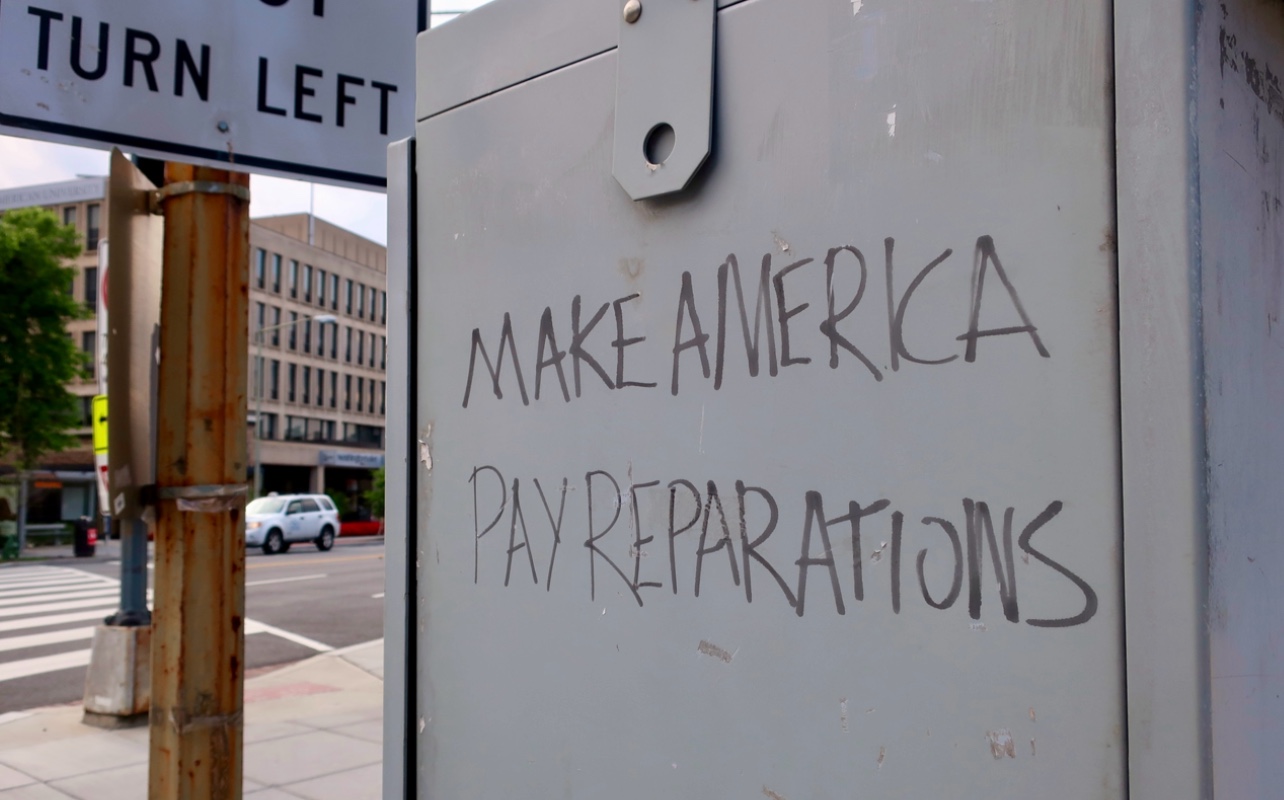
June 7, 2024
Conservative Activist Group Threatens Evanston’s Historic Black Reparations Plan In New Lawsuit
Judicial Watch, a conservative activist group, has filed a class action lawsuit against the program in Evanston after the city became the first in the U.S. to implement a reparations program.
The path to reparations for a group of Black people in an Evanston, Illinois, neighborhood could be cut short following that claims the plan is unconstitutional due to race being a factor in whether a person qualifies for the payments.
Judicial Watch, a conservative activist group, has filed a class action lawsuit against the program in Evanston after the city became the first in the U.S. to implement a reparations program. In 2021, the policy offered payments to Black residents affected by discriminatory zoning from 1919 to 1969, NBC News reports.
The program was created to acknowledge the “historical harm” to residents caused by “discriminatory housing policies and practices,” per the memorandum. Evanston, a suburb of Chicago, is one of the many U.S. neighborhoods known for redlining at the time. The practice, which allowed banks to refuse mortgages to Black people to convince them not to purchase homes in predominantly white areas, has since been outlawed.
Despite the practice of redlining no longer being in place, its negative effect on Black Americans is still evident today. A 2021 study by the National Association of Realtors revealed that the homeownership rate for white Americans was 72.7% compared to their Black counterparts, which was 44%.
For the first phase of the reparations program, Evanston provided $25,000 to eligible Black residents. Thanks to the city’s cannabis sales tax revenue, the city council allocated $10 million for local reparations, which will be distributed over a decade.
If Black residents can prove that they, or their ancestors, lived in Evanston during the aforementioned period or that they’ve experienced housing discrimination due to the city’s policy following those years, they can receive the payment. As of May 1, roughly 129 people had accepted payments on those conditions.
Another 80 people are expected to receive payments this year.
Judicial Watch argues that the program violates the equal protection clause because Evanston uses race “as a proxy for experiencing discrimination between 1919 and 1969.”
“The Evanston, Illinois’ reparations program is nothing more than a ploy to redistribute tax dollars to individuals based on race,” said Judicial Watch President Tom Fitton in a statement.
They are seeking $25,000 in damages along with a judicial order prohibiting the city from “continuing to use race as a requirement for receiving payments through the program.”
The lawsuit is just one of many following the 2023 Supreme Court decision surrounding affirmative action, which now prohibits colleges from using race-conscious admissions practices.
“The City of Evanston does not comment on the specifics of pending litigation, but we will vehemently defend any lawsuit brought against our city’s reparations program,” said the city’s Communications and Engagement Manager, Cynthia Vargas, in response to the lawsuit.
RELATED CONTENT: South Carolina’s Supreme Court Joins 18 Other States With All-White Judges